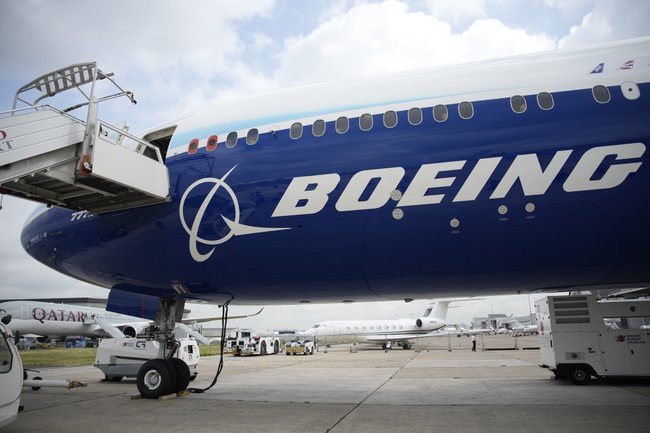
Aerospace giant Boeing is facing fresh accusations of safety violations from yet another whistleblower, who is casting aspersions on the company’s quality control practices.
Merle Meyers, who worked at the airplane manufacturer’s Everett, Washington, factory for more than 20 years has come forward with allegations that Boeing used non-conforming parts on airplanes without proper inspection.
In an exclusive interview with CNN, Meyers detailed the high-pressure environment at the facility. Assembly teams would go to extreme lengths to obtain the parts they needed to keep the production line moving.
Meyers’ claims that lapses he witnessed were intentional, organized efforts designed to thwart quality control processes in an effort to keep up with demanding production schedules.
Beginning in the early 2000s, Meyers says that for more than a decade, he estimates that about 50,000 parts “escaped” quality control and were used to build aircraft. Those parts include everything from small items like screws to more complex assemblies like wing flaps. A single Boeing 787 Dreamliner, for example, has approximately 2.3 million parts.
Most of the parts that were meant to be scrapped were often painted red to signify they were unsuitable for assembly lines, Meyers said. Yet, in some cases, that didn’t stop them from being put into planes being assembled, he said.
“It’s a huge problem,” Meyers told CNN. “A core requirement of a quality system is to keep bad parts and good parts apart.”
Airplanes are highly specified machines with much stricter safety standards than trains and cars. Their parts, materials and manufacturing processes are highly regulated.
Meyers also indicated that workers began signing for the scrap parts they procured on forms that were not official Boeing documentation. This meant that these transactions were not recorded in the company’s database. “The procurement organization would go down to our scrap reclamation yard and intimidate the employees there and say we need these parts bad,” he told CNN.
The whistleblower recounted being rebuffed when he repeatedly tried to bring these issues to management’s attention. “Their investigations are about analyzing excuses by process violators and not taking action against those committing compliance violations,” he wrote in a 2002 email to Human Resources.
The company defended its practices in a statement to CNN.
In its statement, Boeing said the quality team Meyers worked on “plays an important role in identifying issues, improving processes, and strengthening compliance in our factories.”
“We appreciate employees who raise their voice and we have systems in place to encourage them to speak up confidentially or anonymously,” the statement said.
Meyers says his Boeing managers did not know how to handle employees who raised concerns, and said that after decades at the company he was ultimately given a list of management grievances with his work, and offered a vague opportunity to improve – or take a cash payout and leave.
“I was given a list of things to correct – it was my behaviors and my practices as a manager,” he said. “So it looked like a personal improvement program … but it had a financial incentive with it – or you can take this money and quit.”
Meyers’ allegations come after a slew of challenges and scandals facing Boeing, including the grounding of its 737 Max fleet after two fatal crashes, federal and congressional probes, and a myriad of whistleblowers who have shone a light on the company’s practices. Two of these individuals passed away recently, placing even more scrutiny on the company.
These new allegations come at a time when Boeing is already facing some significant challenges. If Meyers’ claims, along with the other whistleblowers, are substantiated, it could further damage trust in the company. It could also invite further scrutiny from lawmakers and law enforcement. In June, prosecutors reportedly recommended criminal charges against the company. So far, it appears the Boeing saga appears to be far from over.
